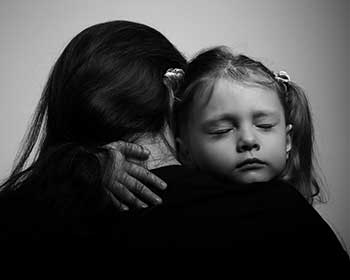Children's Law
Children are often caught in the crossfire when parents separate and many parents do not see their children regularly following a family breakdown. Other family members, particularly grandparents, can also fall out of the picture.

If you are finding it difficult to maintain your relationship with your children following divorce or separation, then we can represent you in negotiations or refer you to a mediator. If you are unable to agree a way forward with the other parent, we can act for you in an application for a court order.
Section 1 of the Children Act 1989 states that the child’s welfare shall be the court’s paramount consideration and that is the underlying principle in all court proceedings concerning children.
Some children’s cases settle at the first court hearing but others are more complex. Sometimes, where the best interests of the children require additional investigation, further hearings will be needed and a referral to Cafcass and/or other professionals may be made, in order to help the court make the right decision.
Applying to the court – the most commonly sought orders:
Child Arrangements Order – this is a court order that states where a child will live and is sometimes called “custody” or “residence”. In some circumstances there may be an order that the child lives with both parents at different times. A Child Arrangements Order can also require a parent to make a child available to see the non-resident parent or another relative. This is sometimes referred to as “contact” or “access”.
Specific Issues Order – an order made when the court gives a decision in relation to one issue of disagreement between the parties, for example choice of school, or going to live abroad with your child.

Prohibited Steps Order – this prevents a particular step (that could have been taken by a parent in meeting his or her parental responsibilities) being taken without the consent of the court. Examples of this could be removal of a child to a foreign country. This order can only relate to matters which are included within the definition of parental responsibility.
Parental Responsibility Order – Parental Responsibility is defined as “all the rights, duties, powers, responsibilities and authority which by law a parent of a child has in relation to the child and his property”. Married parents will both automatically have Parental Responsibility. However, if the parents are unmarried, only the mother will automatically have Parental Responsibility. There are a number of ways an unmarried father can obtain Parental Responsibility, including by entering into a parental responsibility agreement, registration on the child’s birth certificate with the consent of the mother or by application to the court.
Responding to an application to the court for an order
If you have been served with a court application in relation to your children, you might have concerns about whether the type of order sought would really be in their best interests. It is important that your views are made known to the court so that they can be taken into consideration. We can represent you in court proceedings and in dealings with the Applicant or their legal representatives.
In all cases we will provide you with a written costs estimate before things get started so there will be no unwelcome surprises along the way when it comes to your legal fees.
Call us for a fixed fee meeting
0330 633 0194
or for a free initial enquiry
Need Children's Law advice?
Sussex Family Solicitors


